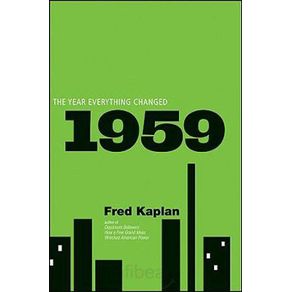Slate columnist Kaplan takes a contrarian view to the common wisdom that the '60s were the source of the cultural shift from pre-WWII traditions to the individualistic, question-authority world of today. In Kaplan's view, the watershed year in this transformation is 1959. He delves into that year's cultural and political scene, citing Miles Davis and his revolutionary album Kind of Blue; William Burroughs and his equally revolutionary novel, Naked Lunch; and the opening of Frank Lloyd Wright's radically designed Guggenheim Museum in New York City as examples of fundamental breaks with past conventions. Kaplan's case is cemented by three 1959 events that he convincingly argues were catalysts for paradigm changes in relationships between men and women (the pharmaceutical company Searle sought FDA approval for the birth control pill), in how citizens view their government (the first American soldiers were killed in Vietnam) and in communications and information transfer (the microchip was introduced to the world). Kaplan doesn't quite convince that 1959 was the year when the shockwaves of the new ripped the seams of daily life, but his writing is lively and filled with often funny anecdotes as he examines some key elements in the transition from the mid to late 20th century.



